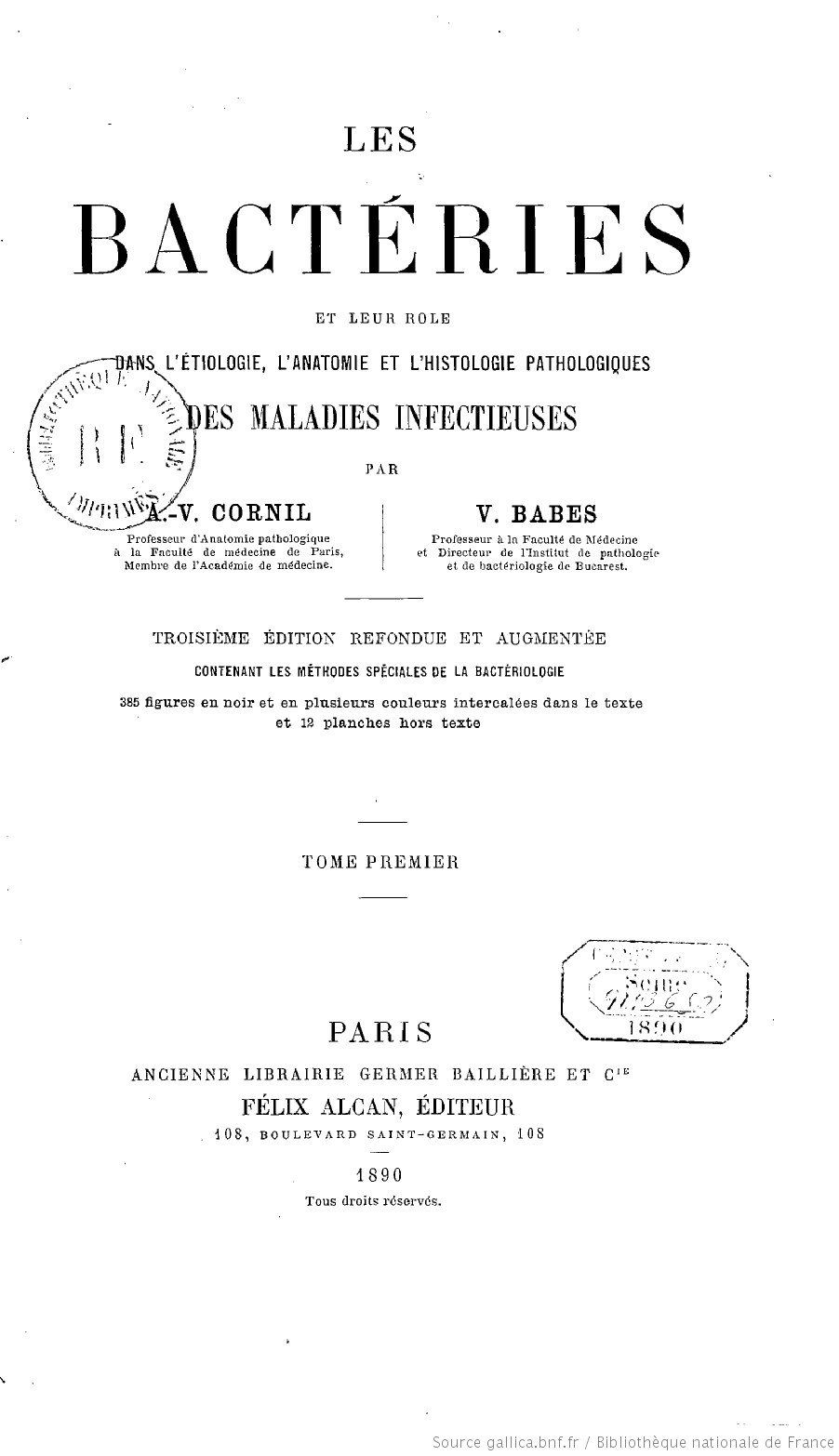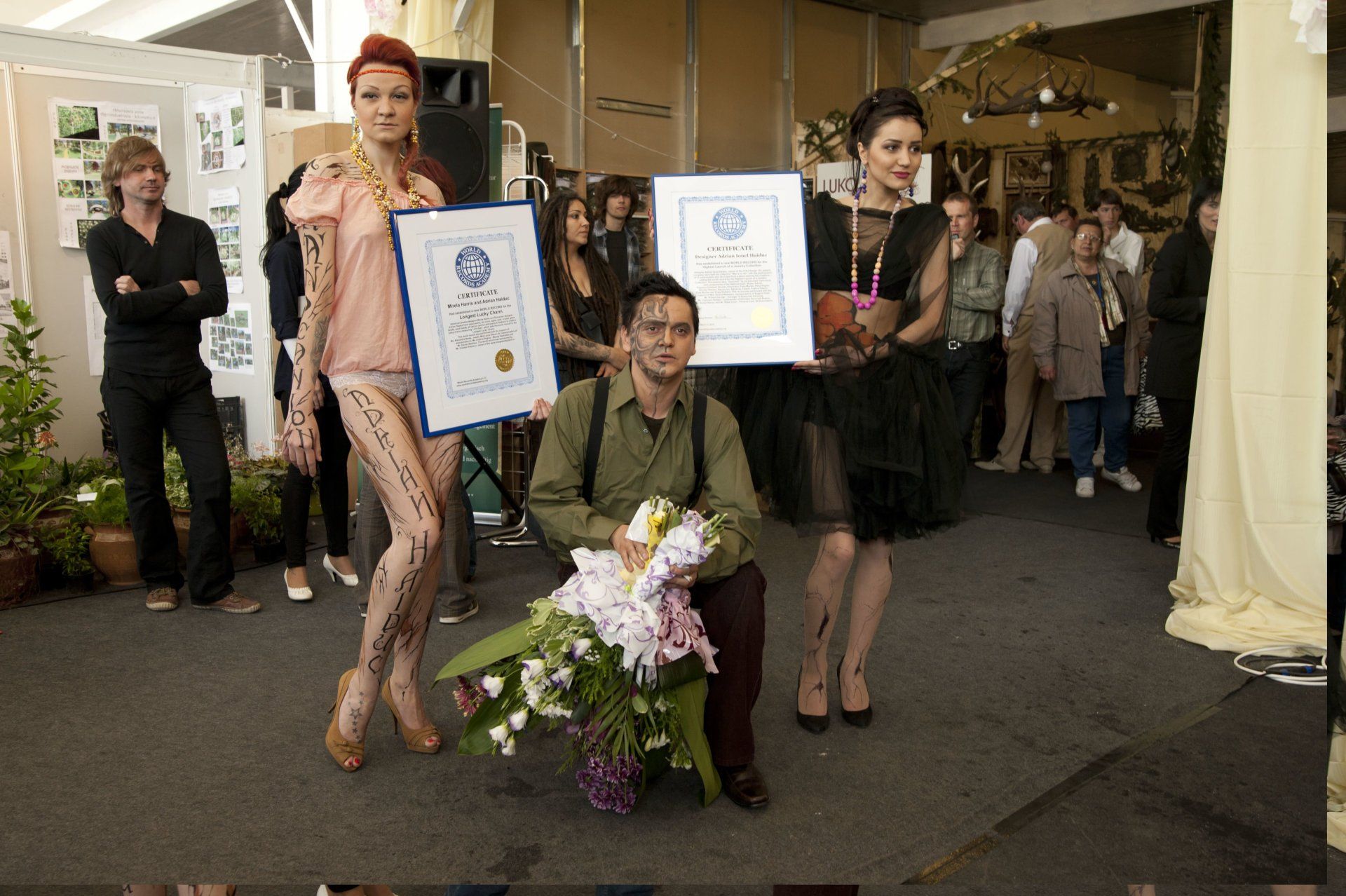World's first treatise of bacteriology: Victor Babes and Victor André Cornil
Cornil, in a letter addressed to Professor Nicolae Kalinderu, with whom he was also a friend: "Babeş is very skillful and full of erudition, and if I put my name alongside his own on the book I did, I did it because I had contributed to it with my knowledge, but more because my name is better known."
PARIS, France & BUCHAREST, Romania --Romanian physician, bacteriologist, academician and professor Victor Babeș
(28 July 1854 – 19 October 1926) and
the French scientist Victor André Cornil
(17 June 1837 – 13 April 1908)are theauthors of the World's first treatise of bacteriology
: Bacteria and their role in pathological anatomy and histology of infectious diseases
,written in1885, according to the World Record Academy.
He began his scientific career as an assistant in the Pathological Anatomy laboratory from Budapest (1874–1881). In 1885 he is appointed professor of histopathology at the Faculty of Medicine in Budapest. The same year, he discovered a parasitic sporozoan of the ticks, named Babesia in his honor (of the family Babesiidae), and which causes a rare and severe disease called babesiosis.
Victor Babeș introduced rabies vaccination in Romania, only three years after its initiation by Louis Pasteur. He is considered the second rabiologist in the world after Pasteur and the father of serotherapy, precursor to modern immunology. His work also had a strong influence upon veterinary medicine, especially concerning prophylaxis and serum medication. He prepared the anti-diphtheria serum and conducted broad activity in researching pellagra, tuberculosis, typhoid fever and leprosy. He has published over 1,000 scientific papers and 25 monographs in the field of microbiology and pathology.
In recognition of his innovative work in medicine, Victor Babes was elected member of the French Académie nationale de médecine, of the International Committee for Combating Leprosy, received three times the award of the French Academy of Sciences. Likewise, he was awarded the title of Knight of the Legion of Honor.
Babeș-Bolyai University in Cluj-Napoca and the University of Medicine and Pharmacy in Timișoara bear his name.
He studied medicine in Paris, earning his doctorate in 1864. In 1869 he became professeur agrègé to the Paris faculty, and in 1884 a member of the Académie Nationale de Médecine. Cornil was elected a member of the Royal Swedish Academy of Sciences in 1902.
Cornil specialized in pathological anatomy, and made important contributions in the fields of bacteriology, histology and microscopic anatomy. In 1863 Cornil demonstrated histological evidence that supported Guillaume Duchenne's hypothesis regarding the cause of paralysis in poliomyelitis.
Cornil, in a letter addressed to Professor Nicolae Kalinderu, with whom he was also a friend: "Babeş is very skillful and full of erudition, and if I put my name alongside his own on the book I did, I did it because I had contributed to it with my knowledge, but more because my name is better known, " the Historia
magazine reports.


